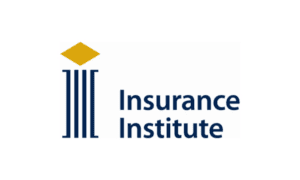One Agents Alliance CEO on making the most of semi-retirement

One Agents Alliance CEO on making the most of semi-retirement | Insurance Business America
Insurance News
One Agents Alliance CEO on making the most of semi-retirement
“I’ve learned in life, almost nothing is completely urgent”
Insurance News
By
David Saric
Tony Caldwell, CEO of One Agents Alliance, is experimenting with the notion of semi-retirement, recognizing the allure of his professional calling while also prioritizing his personal passions.
Caldwell co-founded the insurance aggregate One Agents Alliance (OAA) in 2000, which started off as a solution to help bolster independent agencies into success as they begin their journey in the industry. Since then, Caldwell has been responsible for helping build more than 250 independent agencies, with OAA providing the tools to become proficient at marketing endeavours, while also offering coaching and profit-sharing opportunities.
Aside from his insurance ventures, Caldwell has also taken on the role of chairman of a community bank recently, which was experiencing a difficult time financially. However, it has since reversed course and is on path to grow tenfold from when Caldwell first intermediated.
While he may be still engaged in professional matters, Caldwell is also making sure that his weekly calendar affords time for mental revitalization and a focus on the things he is interested in, amounting to a form of semi-retirement.
“I’ve learned to divide my week into three types of days: free, focus and buffer days,” said Tony Caldwell (pictured). “As I’ve begun to adopt more free days into my calendar, where I avoid business communication entirely, I’ve found that my brain has been able to restore itself and my creativity and problem-solving skills have gotten better.”
“I am currently on track to have 180 free days this year, up from the 165 from 2022. It is an experiment but I’m willing to try it out and see if it’s successful.”
Speaking to Insurance Business by way of Provence, France, Caldwell stressed the importance of trying new work arrangements, why saying no is a worthwhile skill and the value of successful collaboration.
“The post-pandemic work environment is guided by self-reflection”
During the COVID-19 pandemic, the traditional notion of office culture and being productive in the rigid confines of a cubicle was completely upended. Remote workspaces became the norm and it allowed for newer forms of productivity to be introduced into many industries, including insurance.
For Caldwell, this was continuously accruing more of the aforementioned free days in his work schedule. “Not only am I able to indulge in the hobbies that give my life purpose outside of work, but I am also able to efficiently tackle the duties I have on my plate when I am on the job,” he said.
“I have even found the opportunity to be able to work from a different time zone here in Provence but still accomplish everything on my agenda. I can take more time to craft thoughtful responses to emails or attentively respond to pressing concerns since I am hours ahead of my coworkers in North America who are asleep when I begin my workday.”
The benefit of being adaptable means that there is a concerted effort to optimize the potential of each individual employee, regardless of how that may look.
“I recognize that some people prefer the office lifestyle and having that social obligation, and that is totally okay,” Caldwell said.
“I think forward thinking businesspeople and those interested in improving their own lives are going to be very willing to experiment to see what works best for them.”
“The key is not what you say yes to, but what you say no to”
For many professionals, especially in insurance, the need to constantly be clamoured with work has become normalized. Full schedules, constant travelling and responding to emails or text messages outside of business hours is standard procedure.
For many, especially those who are just starting out in the industry, there may be an inherent pressure to become a “yes person” and consistently try to please those around you.
“I have learned in life, almost nothing is completely urgent,” Caldwell said.
“Yes, of course there are those times when things may derail on a project unexpectedly and require immediate attention, but most things that people will urgently need from you is result of poor planning from others or their misunderstanding who you are or what you’re trying to accomplish.”
Burnout can occur when individuals go to extremes to try and make up for the inadequacies of others and negate their own mental and physical wellbeing.
“The key is not what you say yes to, but what you say no to,” Caldwell said.
“And that no may actually mean finding an opportunity to fit that extra duty into your schedule elsewhere, so you won’t feel overwhelmed. It is crucial to set those boundaries for yourself to perform at the best of your ability and take pride in what you’ve accomplished.”
The importance of building out a strong team
OAA has offices in Oklahoma, Texas, Arkansas, New Mexico and California, and while the team members may be separated by topography and time zone, this has not affected their ability to work cohesively and with purpose.
“The one thing that I’ve tried to implement with my employees is effective collaboration and complementing each other’s strengths and weaknesses, regardless of where they are working,” Caldwell said.
“I think it’s important that I focus on what I’m good at and surround myself with people who are better in other areas I’m not as adept in, and vice versa.”
This robust team ethos is crucial, and it is something that needs to be carefully constructed with the right people involved.
Each individual is working towards a similar goal, albeit from different areas of expertise. This creates a necessary safety net, even in the face of professional curveballs that may cause added stress.
“If you look at any successful team in organized sports, the winning unit is always playing by their own game, not their opponents,” Caldwell said.
“Being proactive, as opposed to reactive, is key to finding satisfaction both personally and as a group.
Related Stories
Keep up with the latest news and events
Join our mailing list, it’s free!






